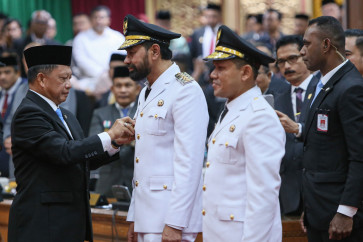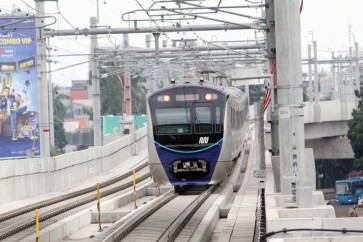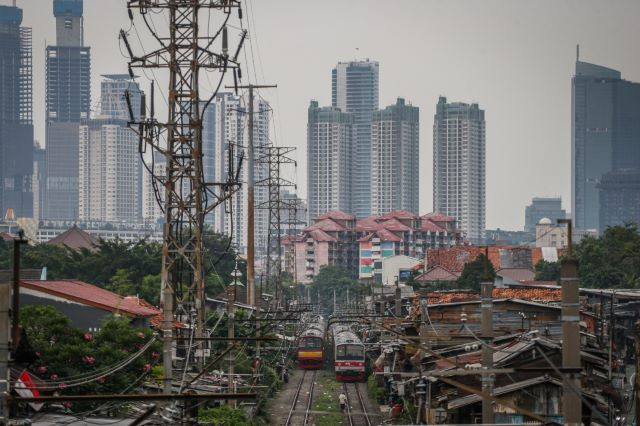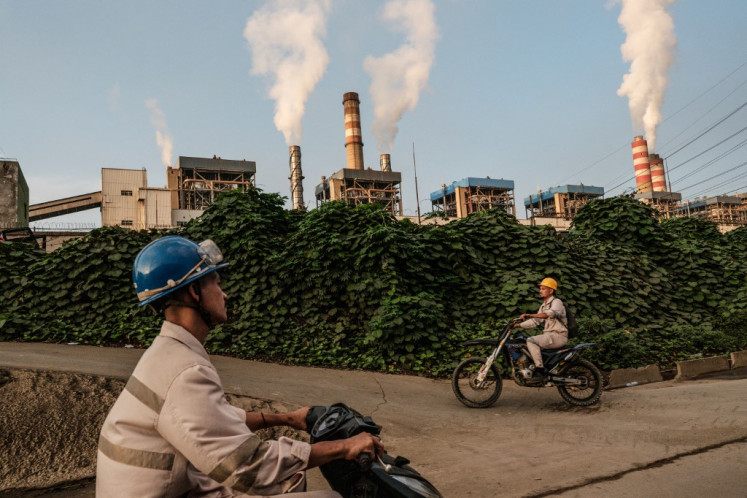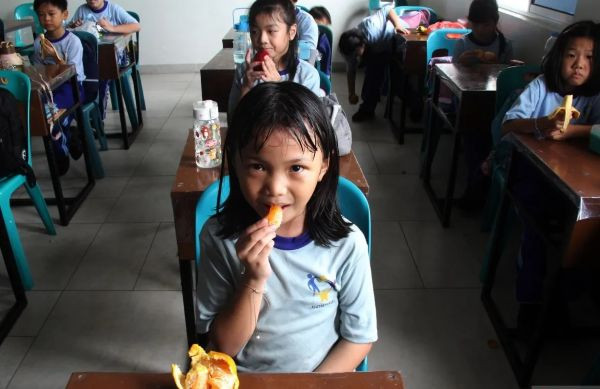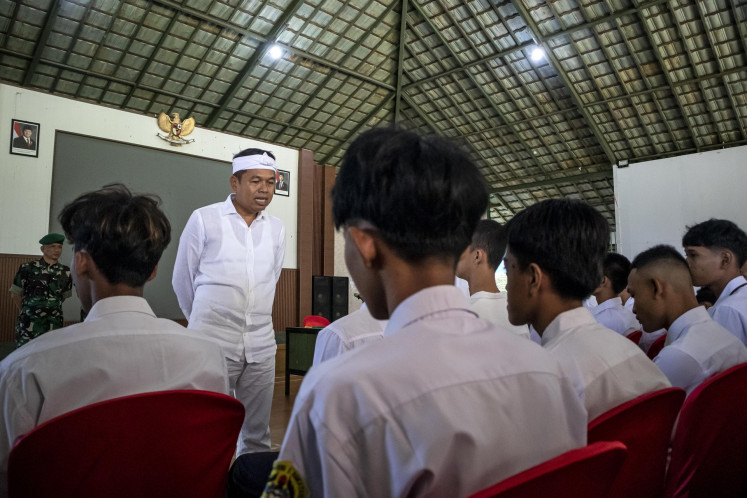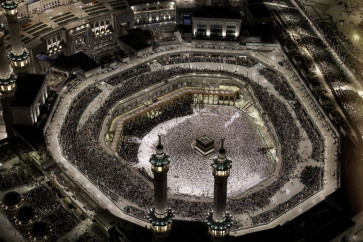Haj, heat and faith: No pilgrim should be left behind
The growing toll of haj pilgrims as temperatures rise has exposed another dimension in the issue of environmental injustice, where climate change is disproportionately affecting the vulnerable among the millions of Muslims who travel to Mecca each year to fulfill their religious obligation.
Change text size
Gift Premium Articles
to Anyone
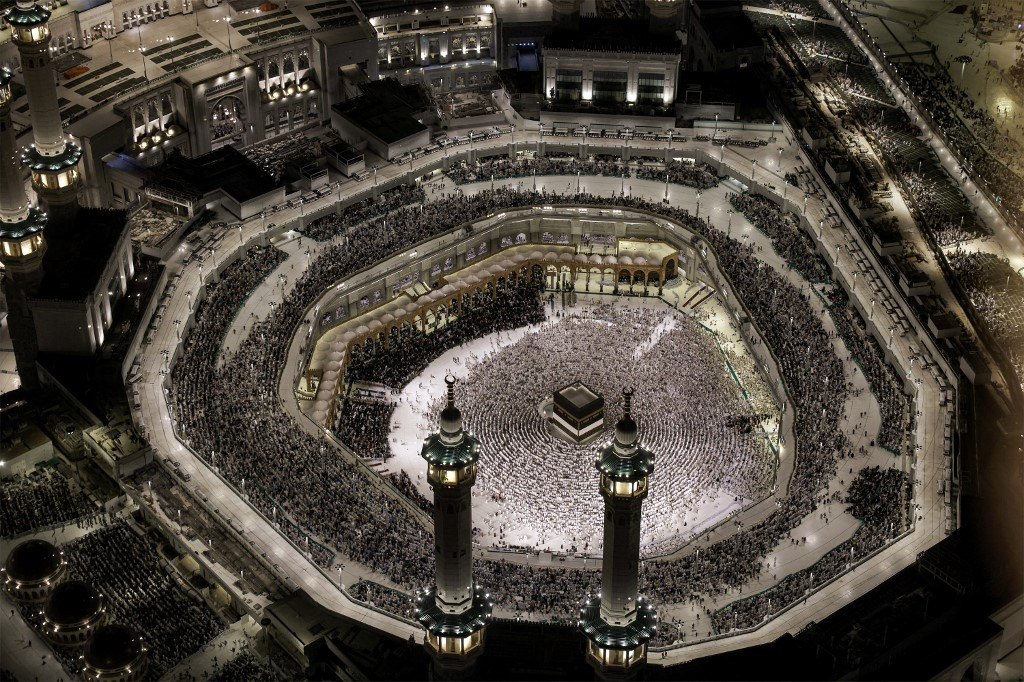 Muslims gather around the Kaaba, Islam's holiest shrine located in the Great Mosque of Mecca, to pray on June 1, 2025, during the annual haj to the holy city in Saudi Arabia. (AFP/Hazem Bader)
Muslims gather around the Kaaba, Islam's holiest shrine located in the Great Mosque of Mecca, to pray on June 1, 2025, during the annual haj to the holy city in Saudi Arabia. (AFP/Hazem Bader)
G
lobal temperatures are on track to reach an alarming new threshold, with the United Nations’ World Meteorological Organization (WMO) projecting a 66 percent chance that Earth will temporarily breach the warming threshold of 2 degrees Celsius in the next five years.
Once considered a worst-case outcome, this scenario is now a near-term reality. The consequences of such a breach are profound, promising falling crop yields, amplified disasters, mass extinction, forced migration and the exposure of more than one-third of the world’s population to extreme heat.
This alarming future is already unfolding. More than 1.8 million Muslims, including over 220,000 from Indonesia, traveled to perform haj in Mecca, Saudi, which peaked on June 6. They did so under intense heat. With temperatures reaching around 44 degrees in the city and its sacred sites, this spiritual journey also served as a physical test of survival for many, especially the elderly and the sick.
Last year’s haj offered a painful glimpse of what is at stake. More than 1,300 pilgrims died during religious rituals, many of them succumbing to heatstroke and dehydration. Hundreds were older worshippers who had saved for years to fulfill the once-in-a-lifetime obligation, only to lose their lives in blistering heat while performing rites under direct sunlight in crowded and exhausting conditions.
The changing climate has thus transformed the haj, a centuries-old symbol of devotion and unity, into a stage for environmental injustice. Those with health vulnerabilities or unable to afford upgraded travel packages, which come with air-conditioned tents and private transport, are disproportionately at risk. While the spirit of the haj teaches that all are equal in the eyes of God, the disparity in pilgrims’ ability to withstand rising temperatures on the ground reveals a harsh contradiction.
This contradiction is not lost on climate scientists like Fahad Saeed, a senior researcher with Climate Analytics. He has warned that, without urgent mitigation and adaptation, rising temperatures will increasingly endanger the most vulnerable pilgrims.
In a 2024 commentary, Saeed emphasized the moral and logistical obligation to protect elderly pilgrims and those with preexisting conditions, regardless of their economic standing. Fulfilling the commitments of the Paris Agreement, he argued, was now as much a matter of faith as it is of science.


